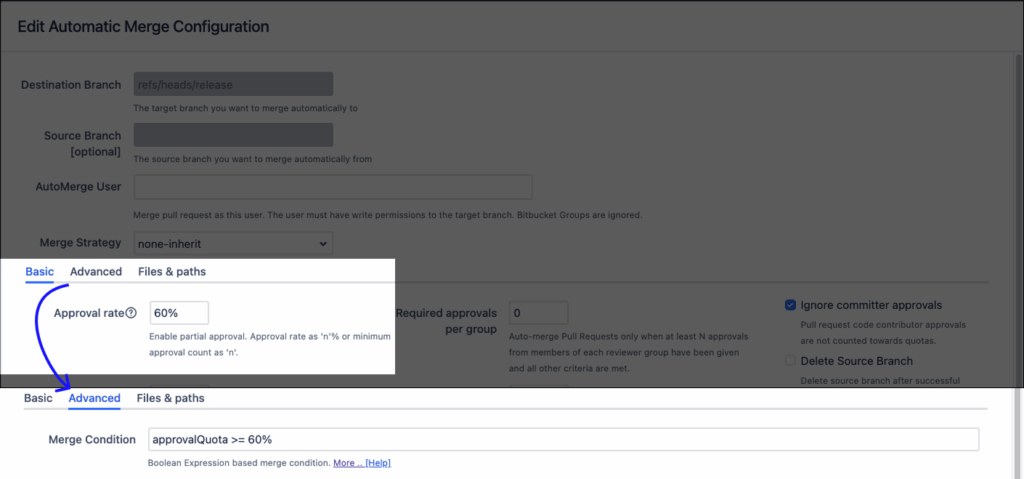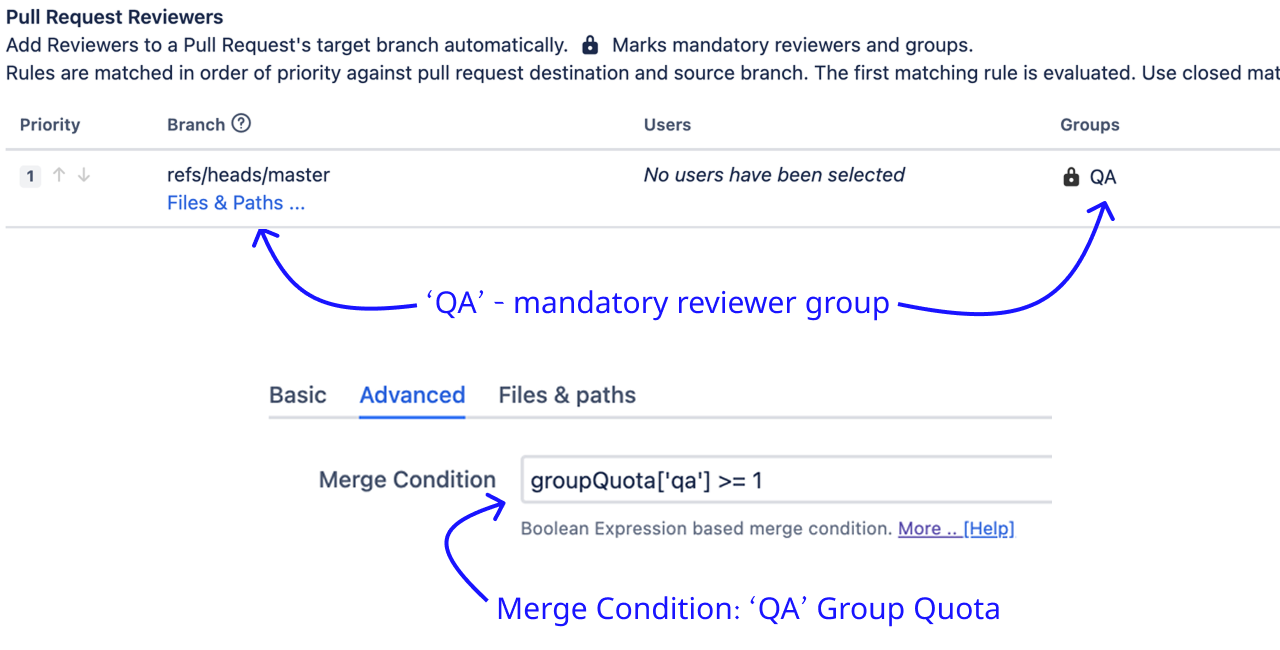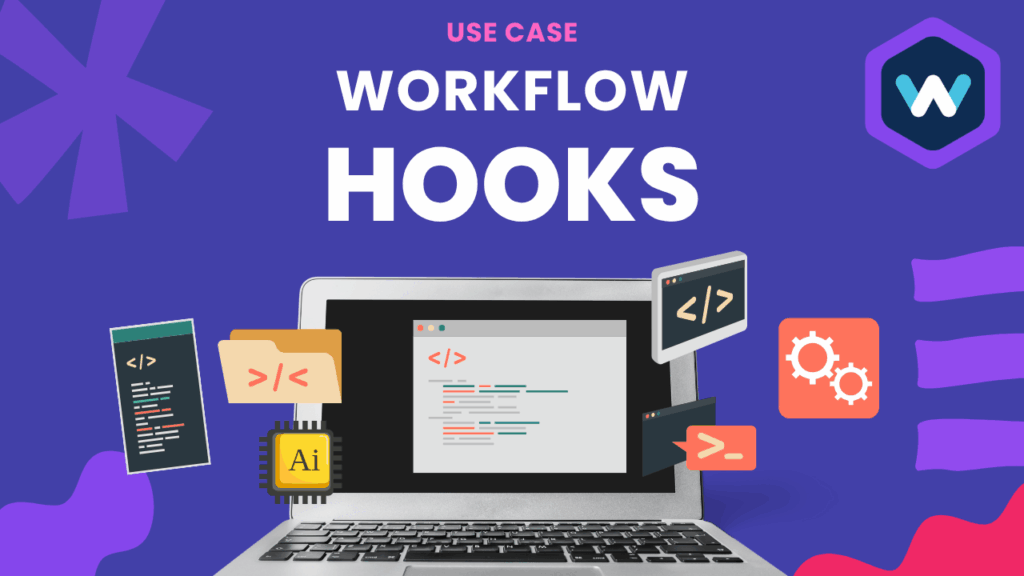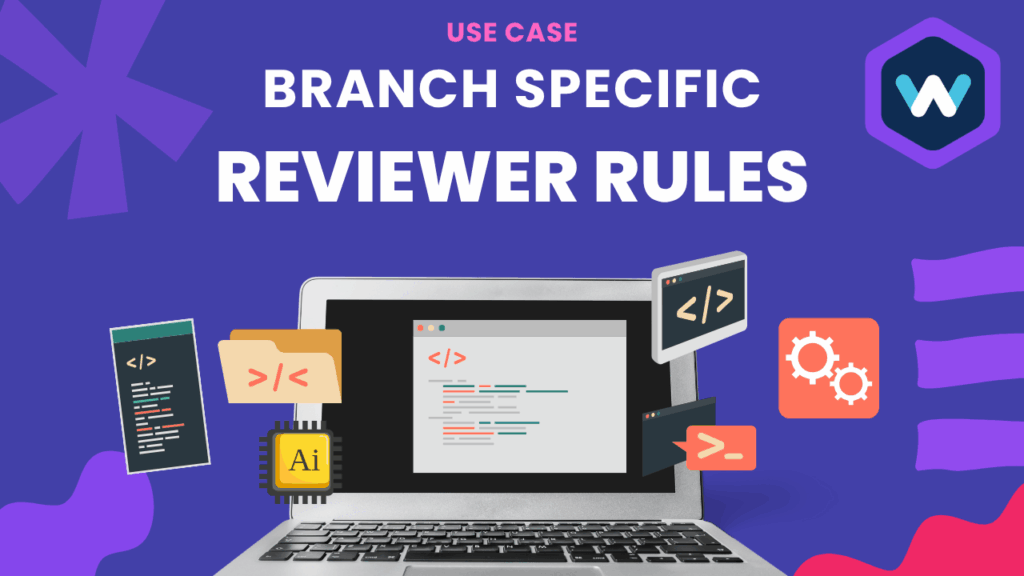Use Case - Workzone
Structuring Reviewer Accountability with Group Quota vs. General Quota
Enforce scalable, role-aware code reviews using general and group quotas — ensuring domain expertise without slowing down collaboration.












Use Case
Structuring Reviewer Accountability with Group Quota vs. General Quota
In large engineering organizations, enforcing structured peer reviews while remaining flexible to team changes is a constant challenge. Developers shift teams, projects evolve, and governance demands persist—especially for regulated, security-conscious, or business-critical environments.
Workzone’s support for both general approval quotas and reviewer group quotas offers enterprise teams the ability to enforce scalable and sustainable code review policies—without creating bottlenecks when teams evolve.
General Quota (approvalQuota): Broad Approval Flexibility
A general quota defines how many of the total assigned reviewers (regardless of role or group) must approve a pull request for it to be merged.
Example:
approvalQuota >= 60%
- If a pull request has 5 reviewers assigned, at least 3 must approve.
- Approvals can come from any mix of individuals or groups.
When to use:
- For cross-functional teams where multiple roles contribute but no strict group responsibility is required.
- To increase flexibility without compromising collaboration.
- For non-critical paths, such as internal tooling or feature prototypes.
Enterprise Benefit:
- Reduces review delays by allowing any reviewer to contribute.
- Supports fluid project teams and temporary contributors.
- Useful for early-stage product development or agile experimentation.

Group Quota (groupQuota): Targeted Approval Responsibility
A group quota enforces that a minimum number of approvals must come from any reviewer group, or specific reviewer groups—such as backend, security, or qa.
Example:
groupQuota >= 1 & groupQuota['backend'] >= 2
- Ensures that at least 1 member of each reviewer group approves.
- Ensures that at least 2 members of the backend team review the changes.
- If other reviewers approve, the PR still cannot merge until backend reviewers have approved.
When to use:
- For module ownership (e.g., backend, frontend, database, infra).
- In regulated industries where role-based approvals are required.
- For critical paths like authentication, payments, or device firmware.
Enterprise Benefit:
- Guarantees domain-specific accountability.
- Satisfies internal and external compliance audits (ISO, SOC, CFR).
- Prevents bottlenecks when individual reviewers leave or rotate—group membership handles the transition.

Mandatory Reviewer Groups + Group Quota = Enforced Accountability
Workzone’s mandatory reviewer groups allow teams to make certain groups unremovable from the reviewer list. This ensures that group-level approvals are not just suggested—they’re enforced.
Pair this with a group quota, and you get unskippable, role-based approvals enforced at the group level.
Example:
groupQuota['qa'] >= 1
‘qa’ is marked as a mandatory group.
- A QA team member must approve.
- Approval from other groups won’t unlock the merge.

Summary: When to Use Each
| Use Case | General Quota | Group Quota |
|---|---|---|
| Lightweight team review | ✅ Yes | ❌ No |
| Code ownership enforcement | ❌ No | ✅ Yes |
| Regulated environments (e.g., CFR, SOX, PCI) | ❌ No | ✅ Yes |
| Teams with changing members | ✅ Yes | ✅ Yes (if using groups) |
| Audit trail & compliance | ⚠️ Limited | ✅ Strong |
Real-World Example
A FinTech company managing a payment platform needs every change in src/payments/** to be approved by at least two senior engineers from the Payments group, even if the broader dev team already approved the pull request.
They configure:
- Reviewer group: payments-seniors
- Group quota condition: groupQuota[‘payments-seniors’] >= 2
- General quota: approvalQuota >= 60%
This ensures:
- Cross-team collaboration is encouraged,
- But the final authority sits with domain experts,
- And PRs are never blocked by inactive reviewers—group logic keeps workflows moving.
Use Cases
Explore More Use Cases...
Learn how enterprise teams streamline workflows, boost compliance, and drive productivity with Izymes apps





